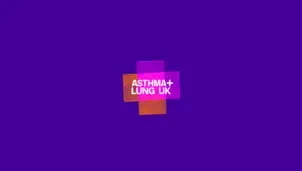Is cold weather bad for my lungs?
In a recent Asthma + Lung UK survey, 7 in 10 people told us that cold air made their lung condition symptoms worse.
This is because:
- Cold air can cause your airways to narrow. This can increase the amount of mucus you produce and make it harder to breathe.
- Cold, dry air can also irritate your airways and make symptoms like wheezing, coughing and breathlessness worse.
- Cold temperatures can weaken your immune system too, making it harder for you to fight respiratory infections like colds and flu.
- When the weather is cold, we often spend more time indoors, including socialising with others. This helps spread respiratory infections.
How can I look after my lungs in the cold?
Staying well in the cold could mean fewer asthma attacks, flare ups of your lung condition, or trips to the GP or hospital.
One of the best ways to help your lungs cope with cold air is to take your medicines as prescribed. You should also:
Look after your lungs outdoors
Spending time outside is important for your mental and physical health. There are ways to help your lungs cope better when you go outside in colder weather.
How to stay safe outdoors
Protect your airways from cold air by making sure the air you’re breathing in is warmed up. You can do this by:
- breathing in through your nose rather than your mouth
- loosely wrapping a scarf around your nose and mouth when outside, or
- wearing a mask, if you feel comfortable to do so.
It's a good idea to:
- Keep your reliever inhaler with you at all times.
- Check the weather before you go out. If you think it might be too cold or windy for you, shorten your time outside or consider staying at home.
- Ask someone to go with you or check in on you if you’re worried about going out in cold weather.
- Keep your head, hands and feet warm by wearing a hat, gloves, or an extra pair of socks.
- Wear layers of thinner clothing, because a lot of thin layers can keep you warmer than one thick layer. Thermal underwear can be helpful too.
Look after your lungs indoors
Cold air can still affect your lungs when you’re inside. To protect your lungs, try to heat the rooms you spend a lot of time in to at least 18°C. For example, your living room or bedroom.
Find out why some types of heating are better for your lungs than others and how you can get help with your heating costs.
Alongside heating your home, there are also some free and low-cost things you can do to keep warm, such as:
- having hot drinks regularly
- using blankets or hot water bottles
- closing your bedroom windows at night
- using draft excluders or blockers to reduce the amount of cold air in a room
- trying not to sit still for more than an hour. You could stretch your arms and legs to keep you warm, or use our Keep Active programme designed for people with lung conditions.
- eating at least one hot meal a day. Eating regularly helps to keep you warm. Find out if you could get help with food costs.
Worried about damp and mould?
If where you live is damp as well as cold, you’re more at risk of being exposed to mould.
Living somewhere that is damp or mouldy is not good for your lungs. Some people are more likely to be affected by damp and mould. This includes babies and young children, older people, people with lung conditions and people with allergies.
If you think you have damp or mould in your home, it’s important to deal with it quickly. Find out more about how damp and mould harm your lungs.
Other things that can affect your lungs
Find out about other things that can affect your lungs in the cold weather:
What should I do if cold weather makes my symptoms worse?
If your lung condition symptoms get worse, acting quickly could stop you from having an asthma attack or flare-up. Make an urgent appointment with your GP or nurse. Tell them your symptoms are getting worse and you’re worried you might have an asthma attack or flare-up.
Keep your reliever inhaler with you
If you use a reliever inhaler, make sure you keep it with you at all times. Use it as soon as you notice any symptoms. This could help you avoid an asthma attack or flare-up of your lung condition.

Get support
Call or WhatsApp our Helpline for support with your condition. Get advice on your medicines, symptoms or travelling with a lung condition, or just call us to say hello.













